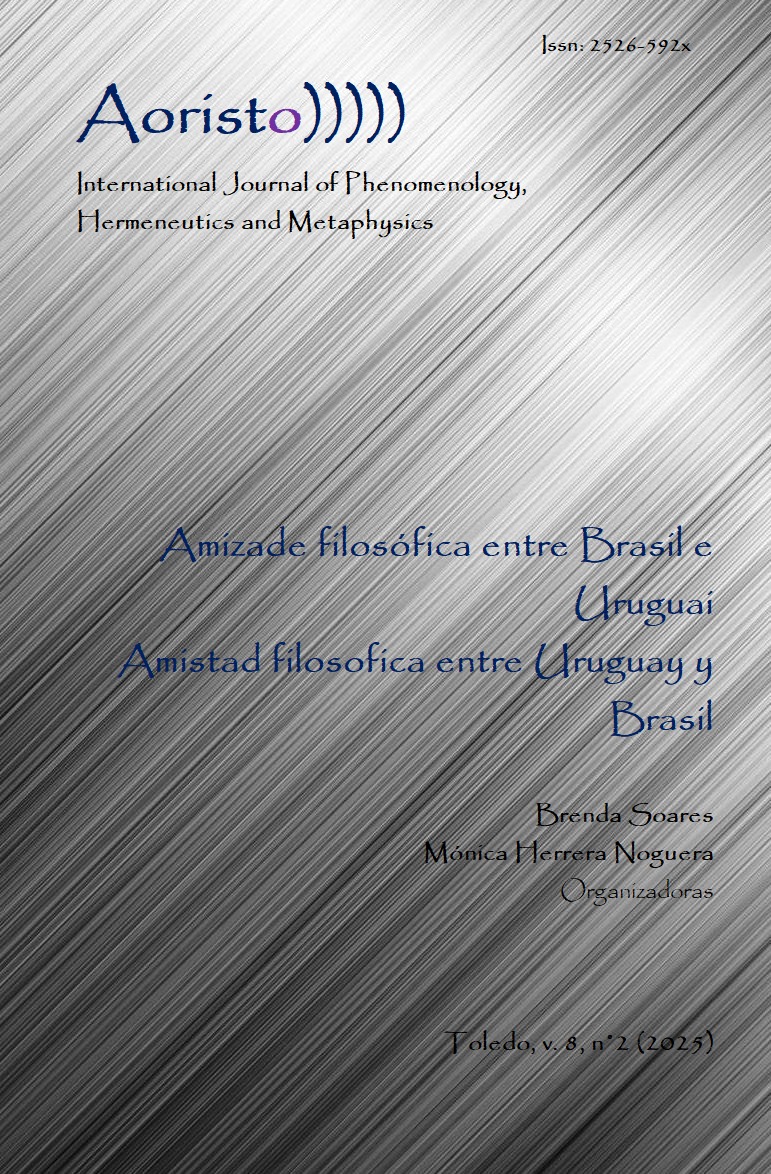Doutrina teleológica das ciências, o princípio de somente julgar na evidência e o mundo como solo originário das idealizações científicas
DOI:
https://doi.org/10.48075/aoristo.v8i2.35983Palabras clave:
Edmund Husserl, teleologia, ciências, evidência, mundoResumen
O presente artigo aborda a doutrina teleológica das ciências em Husserl. Inicialmente, mostra que as ciências caminham em direção à ideia fim de se constituir como “ciência autêntica”. Em seguida, mostra que tal caminhar não seria possível sem que os juízos científicos estivessem fundados na evidência de um estado de coisas. Por fim, o artigo mostra que tal evidência supõe a evidência da presença das coisas elas mesmas que, em última instância, pertenceriam ao mundo, entendido como solo originário das idealizações científicas. Eis, portanto, o objetivo do presente artigo: elucidar a conexão entre a doutrina teleológica das ciências, o princípio de somente julgar na evidência e a suposição inevitável do mundo como horizonte último das ciências.
Descargas
Publicado
Cómo citar
Número
Sección
Licencia

Esta obra está bajo una licencia internacional Creative Commons Atribución-NoComercial-SinDerivadas 4.0.
Copyright Notice
1. I grant the AORISTO – International Journal of Phenomenology, Hermeneutics and Metaphysics the first publication of my article, licensed under Creative Commons Attribution (which allows sharing of work, recognition of authorship and initial publication in this journal).
2. I confirm that my article is not being submitted to another publication and has not been published in its entirely on another journal. I take full responsibility for its originality and I will also claim responsibility for charges from claims by third parties concerning the authorship of the article.
3. I also agree that the manuscript will be submitted according to the Aoristo’s publication rules described above.
License Creative Commons
This work is licensed under a Creative Commons Atribuição-NãoComercial-CompartilhaIgual 4.0 Internacional, which allows you to share, copy, distribute, display, reproduce, in whole or in part, for as long as there is no commercial purpose, and authors and source are cited.


